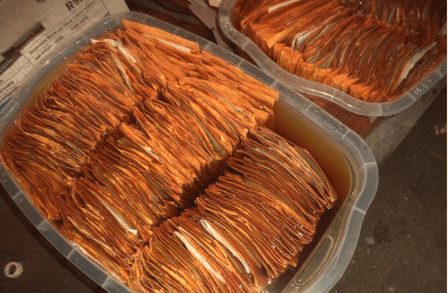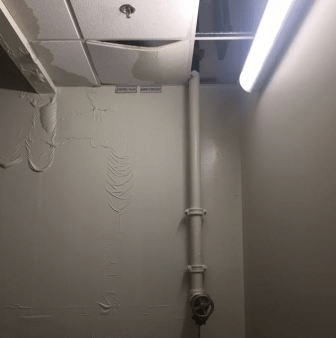Water damage is typically unexpected. Sure you can watch the weather for storm warnings and prepare for an incoming hurricane. But a leaking pipe or a broken water heater is an unexpected event that oftentimes takes business owners by surprise. 40% of small businesses do not reopen after a disaster. Having a plan in place and taking precautions can save downtime and money. Perhaps a more difficult loss to overcome would be a damaged reputation from product loss, damaged documents, or negative consumer perception. This guide provides you with tips to reduce the impact of water damage on your business.
Water Damage Tips for Your Business
- If your organization houses a large number of paper documents, start making electronic backups now. Store this data offsite in the event of a disaster. If you have a limited number of paper documents FEMA recommends you store them in a flood-proof box1.

- Desktops are highly susceptible to water damage from pipe breaks or fire suppression sprinklers. Keep important files stored safely away. Nothing but durable furniture and equipment should be stored directly on the floor. Don't forget to back up your computers.
- Keep a stock of emergency supplies. Tarps, wet vacuums and, towels can prevent further damage quickly and at little cost. The ability to deploy a tarp over sensitive computer equipment or files can dramatically curtail the extent of the water damage. Turn off the main water shutoff valve if your business will be closed for an extended period or on vacation. Label the shutoff valve so your staff can find it quickly.
- Have a continuity plan and communicate with your employees. Who should they call if they encounter a pipe break at 3 AM? Having approved vendors on standby eliminates downtime and decreases the extent of the water damage. You'll also want important contact information for customers, staff, emergency response, and utility companies like gas and electric. Make sure you have the proper insurance for your facility. Flood insurance is often not included in general coverage policies. Also, keep an up-to-date equipment inventory if you need to file an insurance claim.
- Conduct regular inspections and perform routine maintenance. Being proactive can save you time and money down the road. Replace equipment such as water heaters when they reach their end of life. Some signs of water damage are easy to spot, while others require a bit more of a trained eye. Still, if you suspect that there has been water damage, you should be on the lookout for the following signs: dark spots on the walls or ceilings, drywall that begins to flake or crack, drips or puddles around pipes, a damp or musty smell that suddenly appears, a sudden increase in utility bills, hearing running water even when all the fixtures are turned off and an unusual feeling of dampness or humidity.
- Protect your pipes. Keep your heat set at 55º minimum. During a deep freeze, open cabinet doors to circulate warm air and let the faucet slowly trickle to prevent frozen pipes. An additional safeguard is to insulate exposed pipes and drain the water from exterior spigots.

Preparing ahead of time will make a disaster in your business easier to deal with. Hopefully, you'll never have to worry about water damage but if the water should begin to rise, give ServiceMaster Dynamic Cleaning a call at (800) 865-5157and we'll be there to help.

